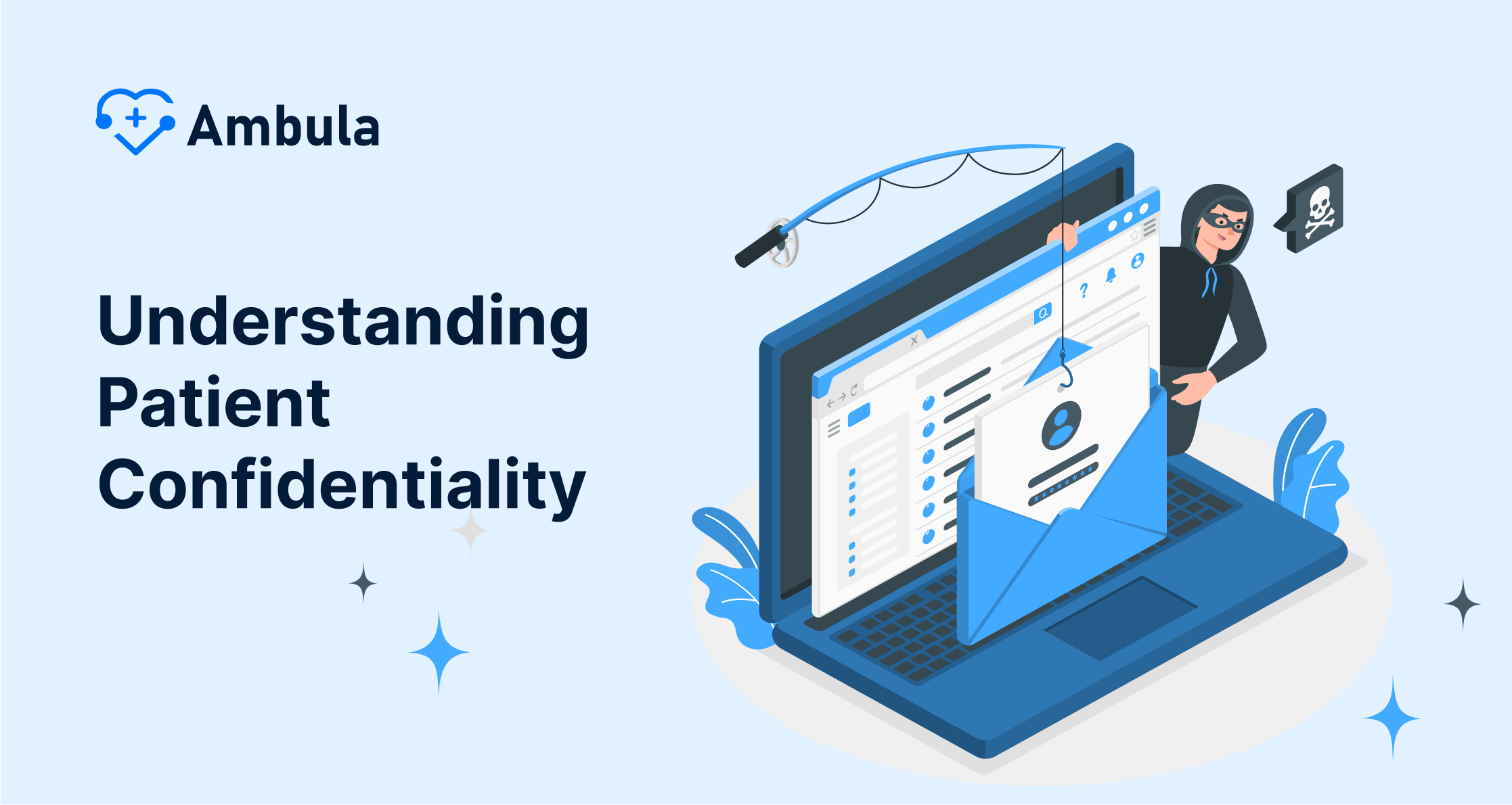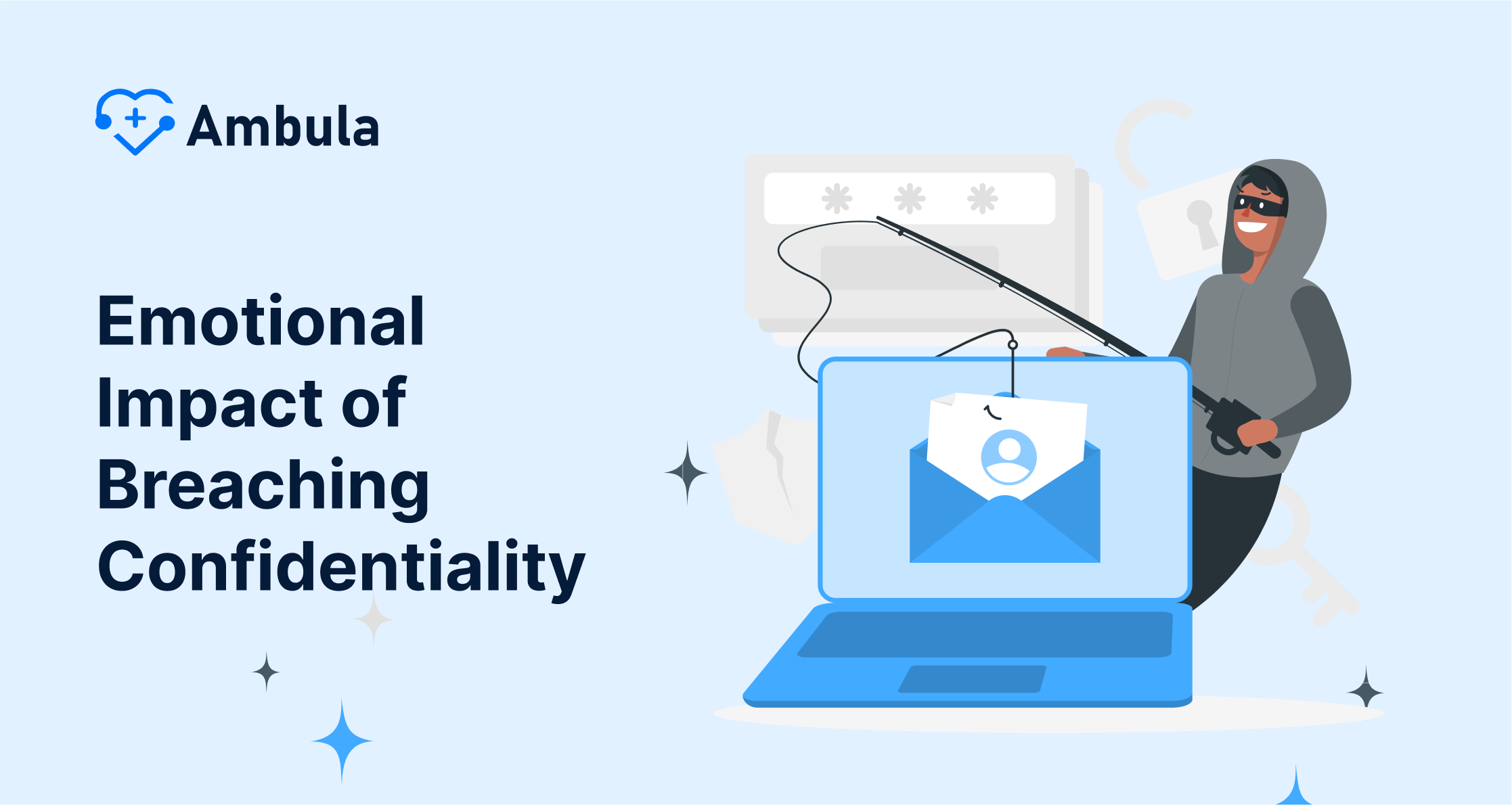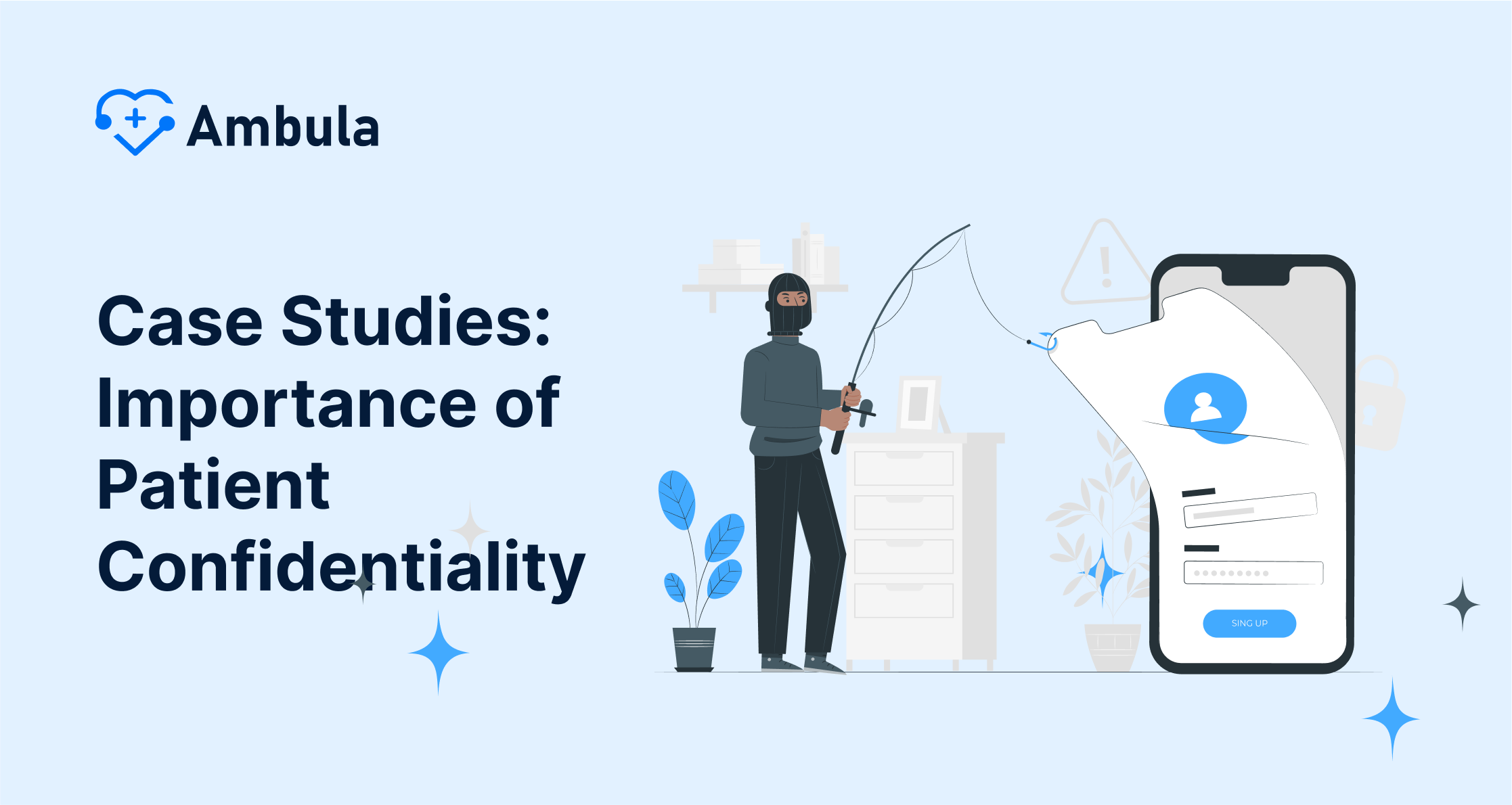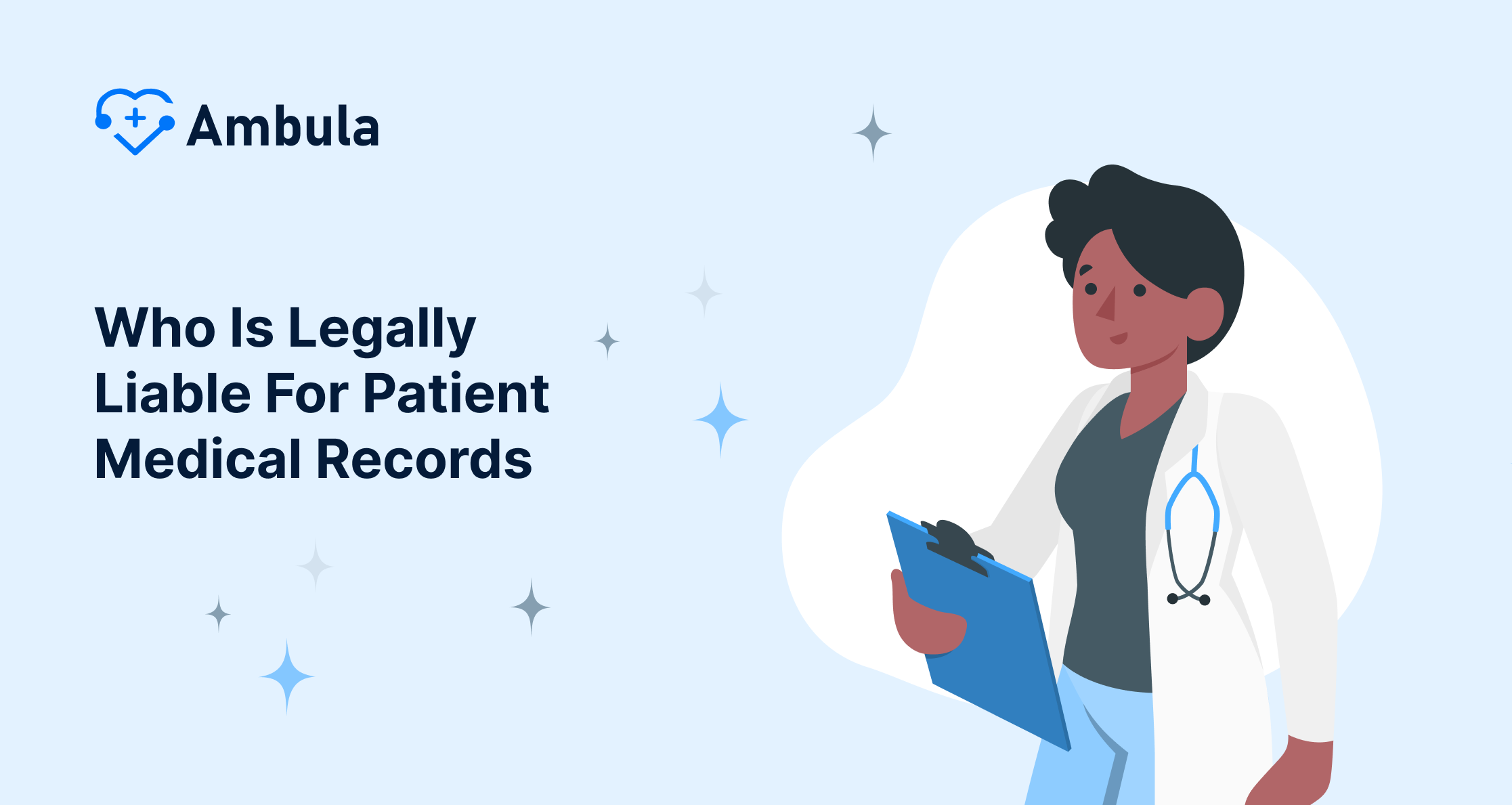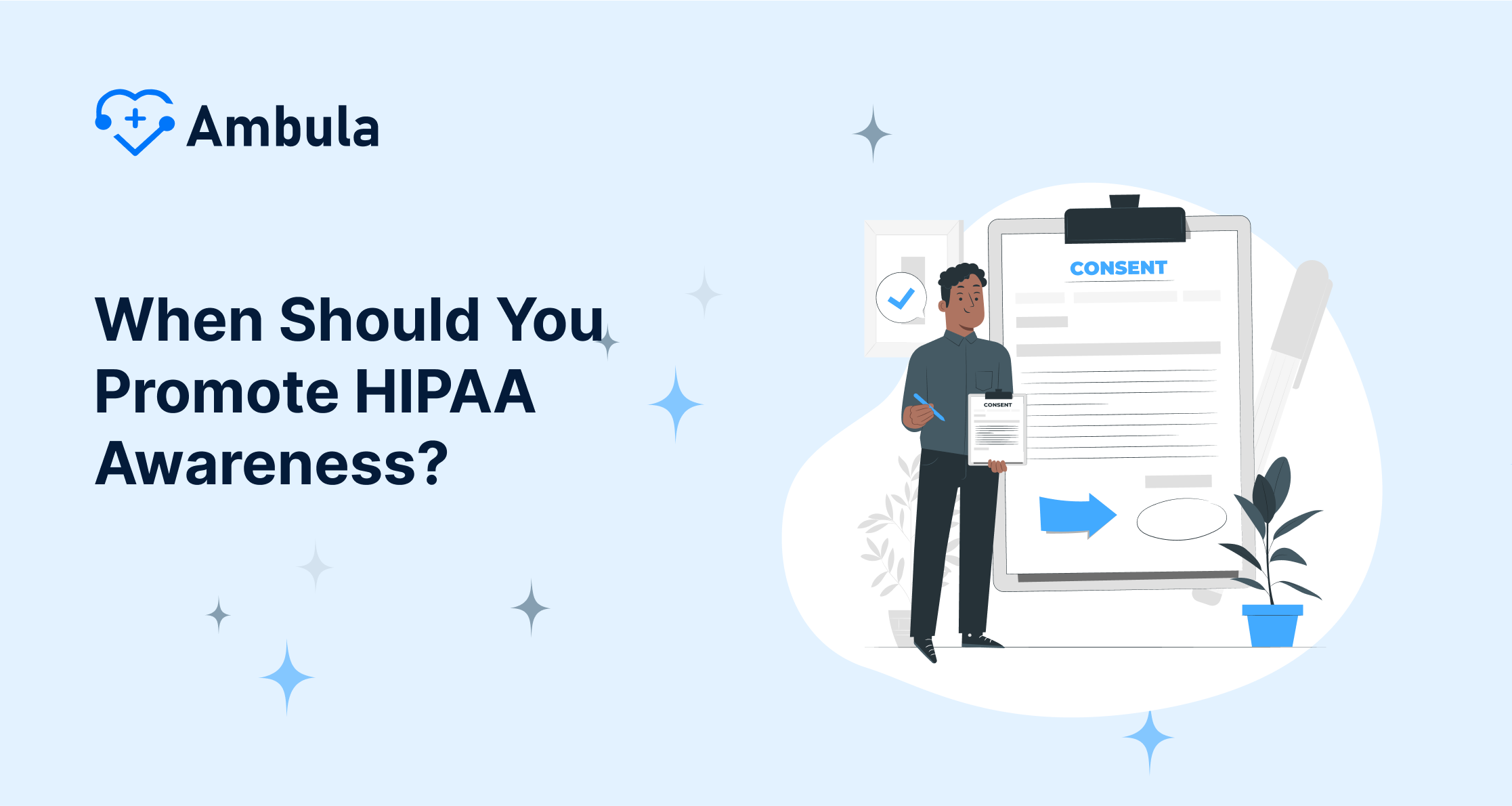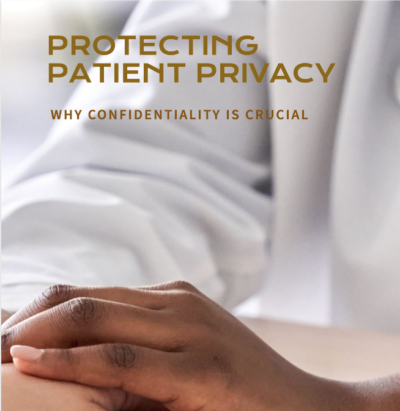
Have you ever wondered why your doctor insists on keeping your medical information between you? That’s called patient confidentiality, my friend. It’s fundamental in the healthcare sector and an indisputable right for every patient. But do you know why it is so important and what it entails? Don’t worry if you don’t because that’s what I’m here to tell you today. So, sit back and read on!
In our rapidly evolving medical landscape, healthcare providers encounter increasing challenges to maintaining confidentiality. But the fact remains that confidentiality shouldn’t and can’t be compromised; in fact, the need for it is more dire than ever. So, let’s look at what ‘patient confidentiality’ truly means to the healthcare sector.
Understanding Patient Confidentiality
Patient confidentiality – sounds like an overly technical term, right? But fear not. Simply put, it’s a set of rules limiting access to your health information. But what does it look like, you ask? It’s reassuring when a doctor doesn’t discuss your medical information with others without your consent. It’s knowing that your records are safely stored away from prying eyes and not passed around like a game of hot potato.
This principle preserves your privacy and appropriately maintains your medical records. It lets you keep your physical and mental health information private. Remember, it’s your health, and you have all rights to keep it confidential. The practice just ensures that your personal health information isn’t disclosed unless it is legal and necessary.
Legal Aspects of Patient Confidentiality
Now, here’s where things get a little heavy, but sit tight, I’m with you. Patient confidentiality is more than just an ethical requirement; it’s also a legal obligation for all healthcare professionals. Here in the U.S., we have the Health Insurance Portability and Accountability Act (HIPAA) set in place to protect patient confidentiality.
Under HIPAA, health records cannot be disclosed without written consent from the patient. This law ensures that health insurance coverage is secure even if you change or lose your job, safeguarding your health info from employers. While this may seem like a mouthful of legal jargon, it concerns protecting your privacy. Simply put, it gives you control over your health information and how it is used!
Emotional Impact of Breaching Confidentiality
And here, we reach the crux of the matter. What happens when confidentiality is breached, and why does it matter? Imagine having your deepest health secrets laid bare for all to see – quite horrifying, right? This breach erodes trust in healthcare and can potentially cause emotional distress.
The revelation could leave you feeling embarrassed, stigmatized, or discriminated against by society, particularly with certain health conditions. It can also indirectly affect your health as it might make you hesitate to seek help in the future, fearing another breach of privacy. First, breaking patient confidentiality is as bad as pouring salt on an open wound. It’s devastating to the patient and unfair.
Professional Ethics in Healthcare
Professional ethics in healthcare are critical for maintaining the trust patients place in their providers, hospitals, and the healthcare system as a whole. We often refer to this as ‘medical ethics.’ This set of principles includes respect for confidentiality, honesty, empathy, and maintaining the highest level of professional conduct.
Let’s start with confidentiality, an essential component of professional ethics. When discussing the confidentiality part of professional ethics, it’s not only about patient records. It’s about maintaining privacy around every bit of patient information that a healthcare professional comes across, whether written, spoken, or electronically transmitted. Breaching this can cause not only emotional harm but also legal repercussions.
When we move to honesty, it implies that healthcare professionals should not conceal any medical facts that must be disclosed. They should always share the prognosis truthfully with the patients, even if the information is grim. They should also refrain from providing misleading information regarding their qualifications or the effectiveness of a treatment or procedure.
Empathy involves treating patients with dignity, respect, and sensitivity to their culture and environment. It also entails understanding the patient’s situation and showing genuine concern for their well-being.
Importance of Trust in Doctor-Patient Relationship
Have you ever noticed that you feel more comfortable discussing your health matters with a doctor you trust? That’s because trust is a foundational element in any healthcare relationship. It’s as fundamental as the stethoscope that hangs around your doctor’s neck.
The trust here is two-fold. First, you trust your doctor’s expertise, believing they have the knowledge and skill to diagnose and treat your health issues correctly. The element of trust highly corresponds to the confidence we put in their medical competency and professional experience.
The second form of trust is more subtle and personal; it’s the trust in their intentions. You trust your doctor to keep your best interests at heart and to ensure your well-being is prioritized above all else. This type of trust relies on the doctor’s commitment to your privacy, integrity, and overall health.
When trust is cultivated in a doctor-patient relationship, it encourages open and honest conversations. This freedom to communicate is crucial for your doctor to make an accurate diagnosis and tailor an effective treatment plan. Without trust, you may withhold important information due to fear or embarrassment, which ultimately detrimentally impacts your health care.
Case Studies: Importance of Patient Confidentiality
So, you might wonder, what exactly happens when this confidentiality is breached? To address this, let’s consider a few real-life case studies. For instance, a hospital in California was fined $275,000 for disclosing a patient’s medical record to the media. A few years back, a Rhode Island hospital had to pay a $400,000 fine for potential HIPAA violations.
These cases serve as potent reminders that breaching patient confidentiality can have severe repercussions for patients and the violating institutions, with legal implications involving hefty fines and reputational damage.
Technology and Patient Confidentiality
Now, let’s hit the topic of the century – technology. Technology can be a boon or a bane for healthcare, especially regarding patient confidentiality. The switch from paper health records to electronic ones has brought numerous hitches to the surface, like the risk of hacking and inadequate data protection.
However, healthcare providers are pulling out all stops to protect your electronic health records. This includes using secure networks and encryption keys and reviewing system activity regularly. The idea is to strike a balance between sharing essential information and keeping it secure, all thanks to the marvels of today’s technology.
Strategies for Maintaining Patient Confidentiality
Wrapping up the blog, let’s dive into some suggestions for healthcare providers to maintain this critical confidentiality. Regular staff training and awareness programs about the significant role of patient confidentiality could go a long way in preserving trust.
Another step is employing encrypted systems to store patient data and ensuring secure methods to dispose of patient records. Restricting access to patient data and implementing policies that penalize negligence are also pretty effective in increasing confidentiality.
Conclusion
In conclusion, the significance of patient confidentiality in healthcare is immense and multifaceted. It extends from establishing trust in doctor-patient relationships to the legalities that revolve around safeguarding patient data. Confidentiality isn’t merely desirable; it’s mandatory and necessary from both ethical and legal standpoints.
So, the next time you step into a medical clinic or hospital, remember you’re not just in control of your health but also your health information. After all, confidentiality in healthcare isn’t a luxury; it’s a right that you, as a patient, hold.

